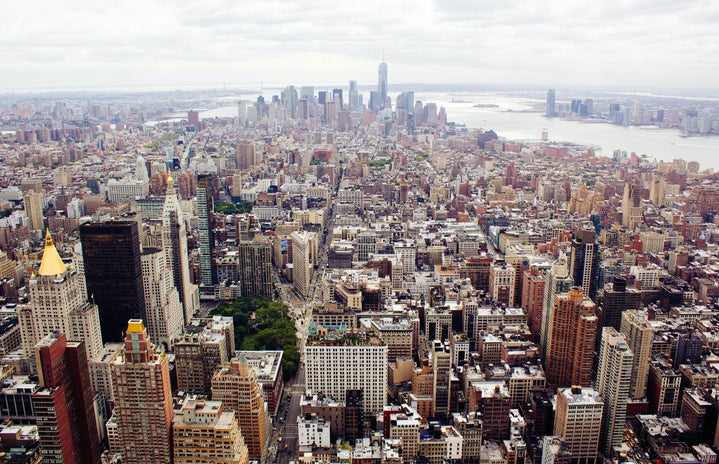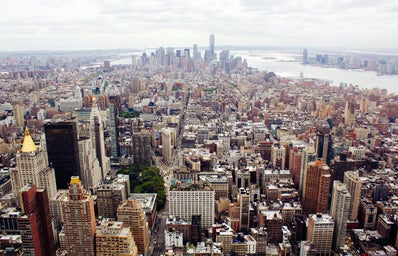Over the past few months, I’ve seen more Tik Toks about people romanticizing living or moving to New York City, and they’re the most aesthetically pleasing videos I’ve ever seen. As someone who adores the idea of city life, these videos with a glimpse into the high rises, taxicabs, and busy streets of any stereotypical city-lifestyle always do it for me. This format is for any other major city too. I’ve seen them for San Francisco, Paris, Los Angeles, Tokyo, and more. However, as I’m watching them, I wonder what the point of this is, and if it is a healthy way to look at cities around the world.
The short answer is: maybe.

Another part of this argument is that the influx of people with unrealistic and untrue expectations now possess a gentrified view of the city. Videos like these tend to ignore the culture and history of each of the neighborhoods in the city as well as a realistic outlook of what it means to live in them. Some neighborhoods in major cities are historically of one ethnic group, others to a certain socio-economic status and others on the opposite spectrum of that. When you have cities as large as New York or Los Angeles that have so many different sections, each of the neighborhoods cannot be bunched together into one overarching look on the city.
This also contributes to a growing gentrification in major cities. According to a study by the Urban Displacement Project, some neighborhoods in New York City such as Manhattan, Brooklyn, and Queens are becoming “islands of exclusion” because low-income households would never be able to pay rent in those areas anymore. The study also found that over 12 percent of neighborhoods are gentrifying or in an “advanced state of gentrification” where the average income is getting into the moderate-high range. This displacement and gentrification is not always the most positive change that a city can take on, and Tik Toks or videos like them romanticizing that lifestyle definitely can contribute to new people who have the means to pay the higher rent moving in.

This isn’t supposed to be a bash on places like New York City. I would also love to live there one day to see all of the different areas and cultures that the city has to offer, or at least have the means to visit. Again, it’s a sticky situation when romanticizing a city for only its aesthetic and good parts. It makes the small towns and businesses seem forgotten or unappreciated for what they have to offer.
Ultimately, if you have good intentions and the city is right for you, maybe a little romanticization is the only way to see something positive in that place.
Want to keep up with HCBU? Make sure to like us on Facebook, follow us on Instagram, check out our Pinterest board and read our latest Tweets!


